
native Crimean Tatars
, are having to adjust to new laws enforced by Russia after their homeland was annexed from Ukraine following a referendum in March.(Photo:muslimvillage.com)" width="426" height="321" /> Around 300,000 Muslims in Crimea have to adjust to new laws enforced by Russia after their homeland was annexed from Ukraine following a referendum in March.(Photo:muslimvillage.com)Simferopol, Crimea, 16 Shawwal 1435/12 August 2014 (MINA) – The Religious Administration of Muslims of Crimea has called on Muslims living in the disputed Black Sea peninsula to destroy books and material that is on the Russian black list.
Around 300,000 Muslims in Crimea, mainly native Crimean Tatars, are having to adjust to new laws enforced by Russia after their homeland was annexed from Ukraine following a referendum in March.
As Russia’s Federal List of Extremist Materials comes into effect in the region, a number of Islamic religious books, that under Ukrainian law was deemed legal, have now been outlawed, muslimvillage.com quoted by Mi’raj Islamic News Agency (MINA) as reporting, Tuesday.
“The Religious Administration of Muslims of Crimea informs Muslim religious organizations, and society that Russia’s federal list of banned extremist materials extends over Crimea. Therefore distribution, production or storage of materials mentioned in the list is forbidden and will entail responsibility,” said a statement released on the Religious Administration’s website.
Also Read: Hundreds Rally in Stockholm to Condemn Israeli Attacks and Ceasefire Violations in Gaza
“Please study the list and take measures to eliminate prohibited materials if they exist,”the statement advised.
The Federal List of Extremist Materials was compiled by the Russian Ministry of Justice on July 14, 2007 and contained 1,058 items as of December 25, 2011. Producing, storing or distributing the materials on the list is an offense in Russia, the Qirim News Agency reported.
Some Islamic books that have been banned include the work of popular 20th century Turkish scholar Said Nursi and the famous “Fortress of the Muslim” book of supplications of Prophet Muhammad, which was collected by ancient Muslim scholar Saeed Bin Ali Bin Wahf Al-Qahtani. A certain biography of the Prophet Muhammad is also banned.
The list also includes texts and books such as Adolf Hitler’s Mein Kampf, Jehovah’s Witness publications.
Also Read: Mass Protests Erupt in Bologna Against Israeli Teams Ahead of EuroLeague Match
CRIMEAN TATARS ‘TARGETED’

Some Islamic books that have been banned include the work of popular 20th century Turkish scholar Said Nursi and the famous “Fortress of the Muslim” book of supplications of Prophet Muhammad, which was collected by ancient Muslim scholar Saeed Bin Ali Bin Wahf Al-Qahtani. (Photo:worldbulletin.net)
Since the annexation in March, around 3,000 Crimean Tatars have left the peninsula for mainland Ukraine.
The U.N. has also pointed to the erosion of human rights in Crimea, which remains under the occupation of pro-Russian militias who particularly threaten the Crimean Tatars.
Crimean Tatars have complained that they have been targeted for speaking their Turkic language in public and have had their homes marked by pro-Russian militiamen.
Also Read: Finland’s Largest Retailer Halts Israeli Product Sales
The Crimean Tatar Mejlis (Parliament) was also threatened with closure after they organized protests for former Mejlis head Mustafa Jemilev, who has been barred from entering the peninsula for five years along with current leader Refat Chubarov.
The Crimean Tatars have largely opposed the annexation of Crimea by Russia, fearing a repeat of the events of 1944 when they were completely expelled as part of former Soviet dictator Josef Stalin’s policy.
They gradually started returning in the early 1990s after the fall of the Soviet Union, but still live as a minority in their homeland as they were displaced by ethnic Russian settlers who migrated there later on.
Since the annexation, Russia has been granting Russian citizenship to the people of Crimea in replacement of their Ukrainian nationality. Crimean Tatars, who have campaigned to reject Russian citizenship, reserve the right to remain as Ukrainian citizens, but will by default become foreigners in their homeland. (T/E01/IR)
Also Read: 1,000th Western Military Supply Plane Lands in Israel Since Gaza War
Mi’raj Islamic News Agency (MINA)





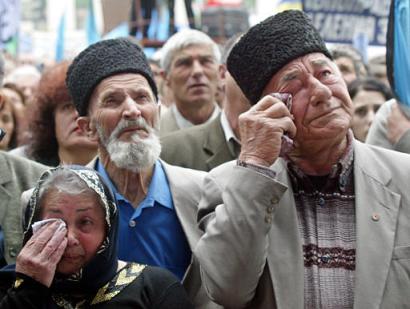

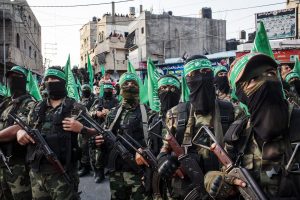
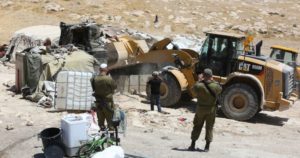


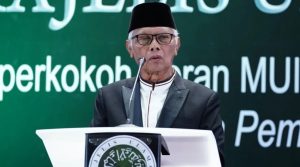
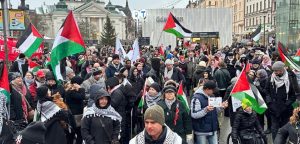
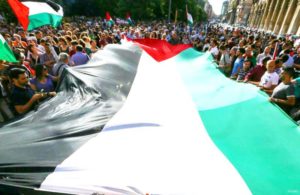
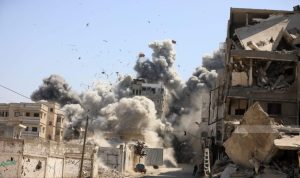
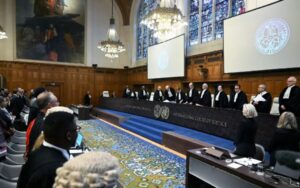
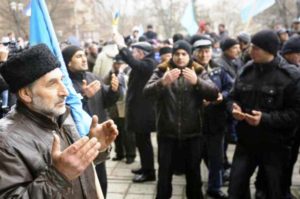
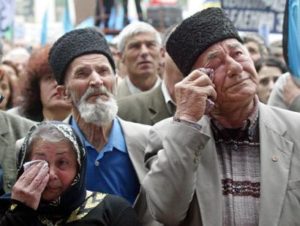














 Mina Indonesia
Mina Indonesia Mina Arabic
Mina Arabic